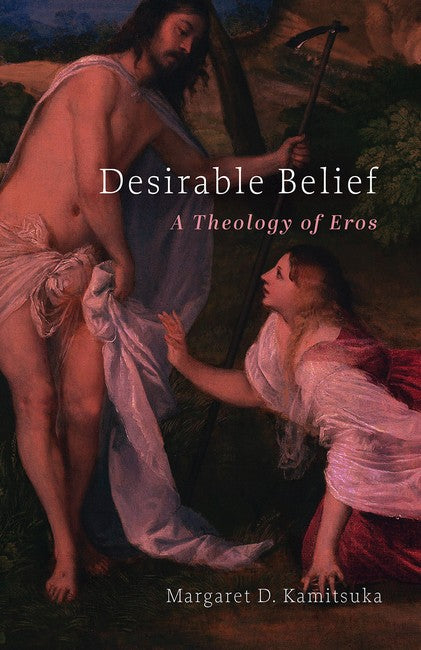Margaret Kamitsuka is the Francis W. and Lydia L. Davis Professor Emeritus of Religion at Oberlin College, Ohio. She is the author of Unborn Bodies (2023), Abortion and the Christian Tradition (2019), and Feminist Theology and the Challenge of Difference (2007). She edited The Embrace of Eros: Bodies, Desires, and Sexuality in Christianity (2010) and is coeditor of The T & T Clark Reader in Abortion and Religion (2023). She has published widely, including in The Oxford Handbook of Theology, Sexuality and Gender, Journal of Religious Ethics, Journal for the Feminist Study of Religion, Theology Today, and Christianity and Literature. She serves in public-facing forums as an expert on issues of reproductive ethics and abortion.
Description
1. Erotic Blush: Augustine, Austen, and Narcissism 2. Mystical Longing: Angela of Foligno, Rebecca Cox Jackson, and Abject Embodiment 3. Deferred Eros: The Song of Songs, Magical Realism, and Unfulfillment 4. Self-Love: Bethany, Gethsemane, and Restraint 5. Eros Ascended: Jesus, Dante, and Divine Impassability
Drawing on the deep wisdom of years of teaching and research, Kamitsuka invites readers into a beautifully crafted deep dive into eros as what connects us to one another and to the divine. Equal parts poetic and literary, biblical and theological, historical and contemporary, conceptual and lyrical, Desirable Belief offers a vital healing balm to all of us. --Ellen T. Armour, Vanderbilt University In this timely and exquisitely written book, Kamitsuka has written the theology for which I have been longing. A deep and powerful meditation on the significance of the Song of Songs for contemporary theology and faith, Kamitsuka skillfully interweaves this erotic text with both doctrine and fiction. Song of Songs once held a place of centrality in the Christian spiritual tradition. In this work, Kamitsuka reminds us why and offers us fresh language to reclaim the Christian faith as full of embodied desire. At once groundbreaking and yet entirely in keeping with the goods of the Christian tradition, here eros takes center stage, not as simply metaphor but as sensuous, embodied desire at the heart of what it means to be human. This is a simply superb work of theology. --Karen O'Donnell, Cambridge University This book does for eros what no other book has done. An original treatment of the Song of Songs, mystical love, self-love, love after death, and much else, this is a work of striking honesty, realism, humanity, and faith. --Adrian Thatcher, University of Exeter

